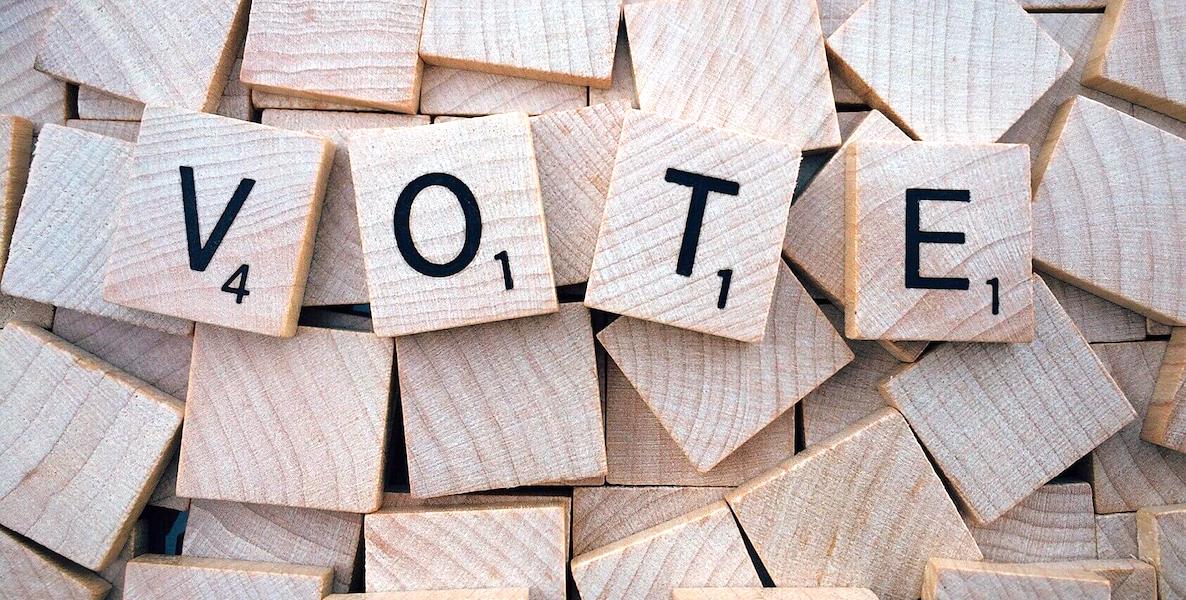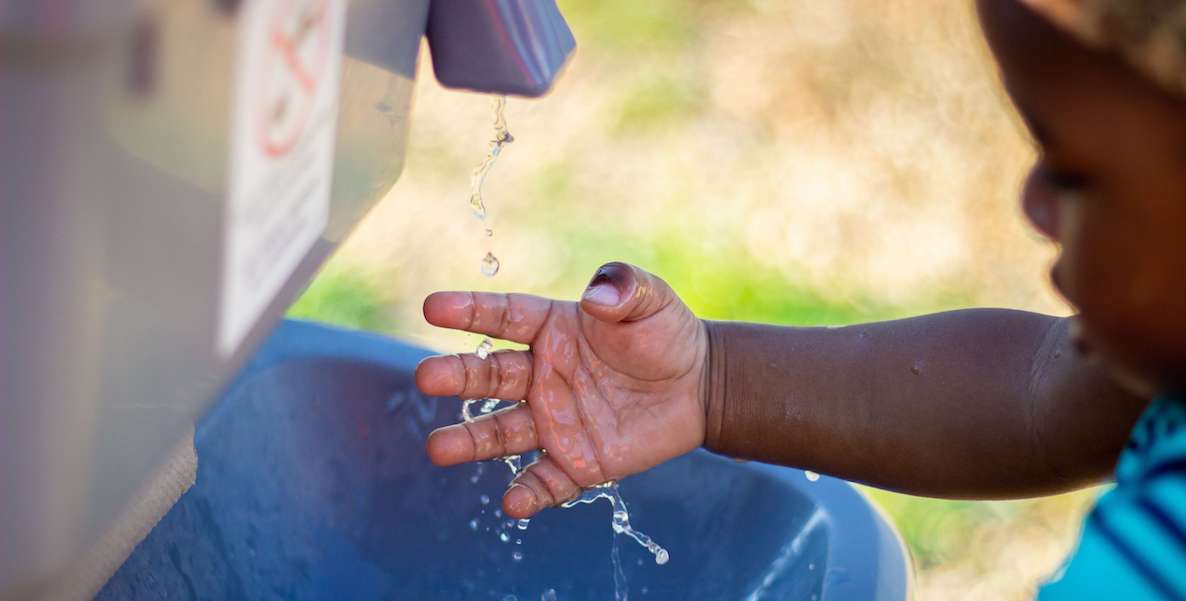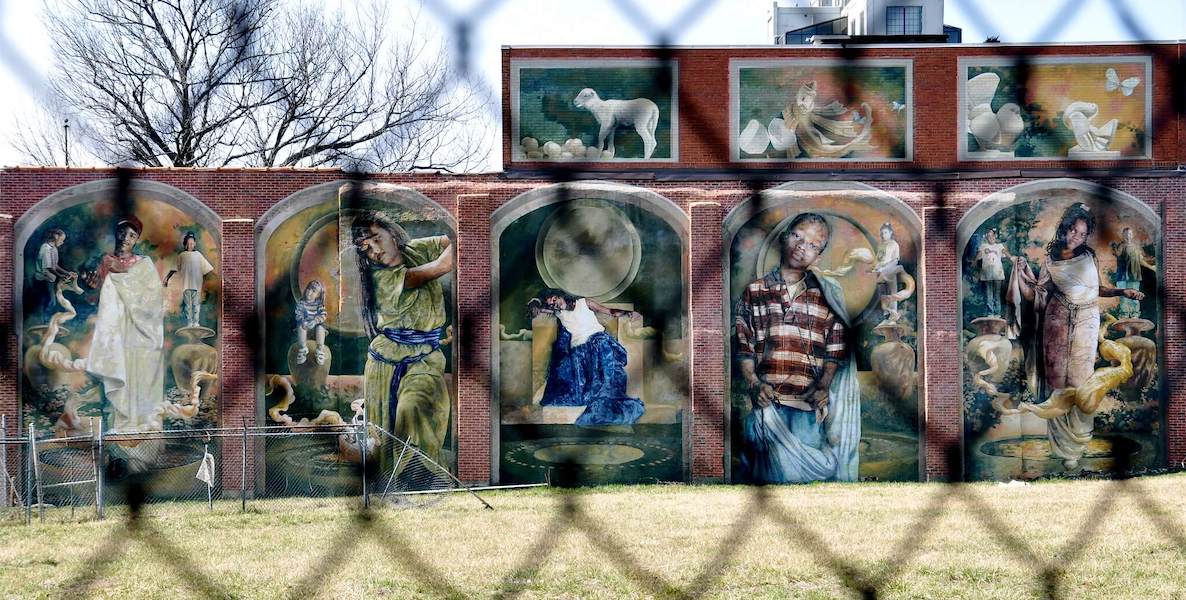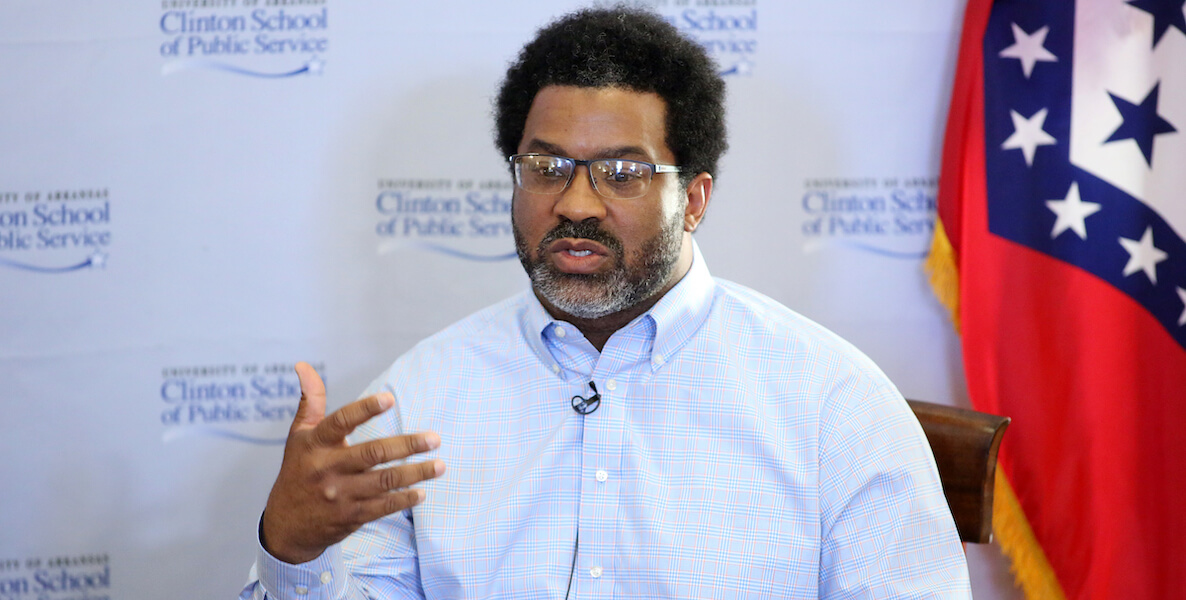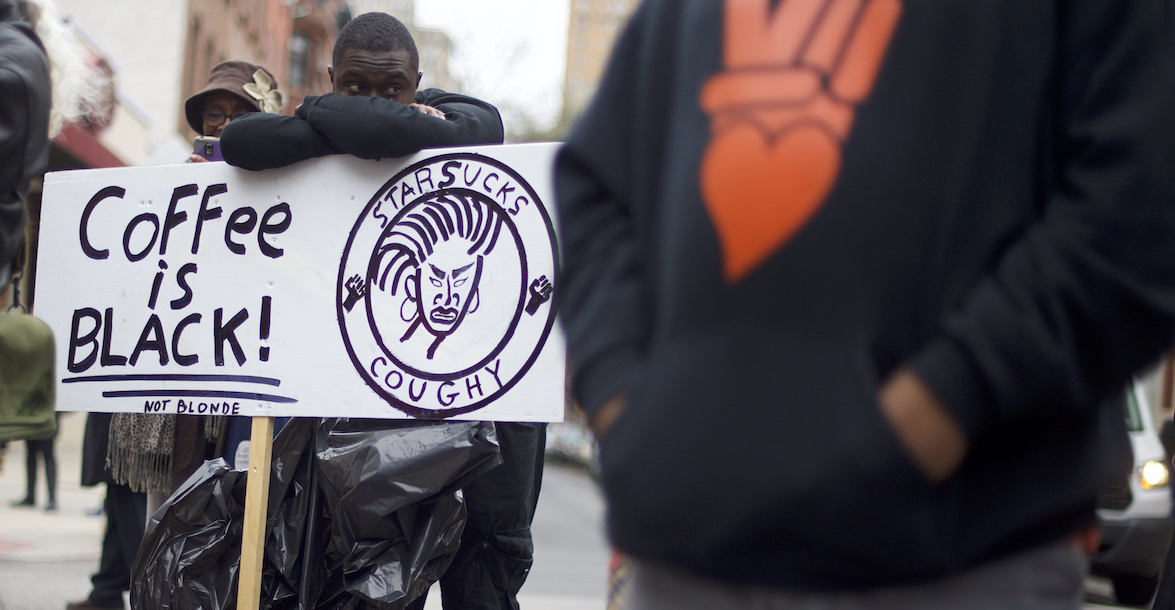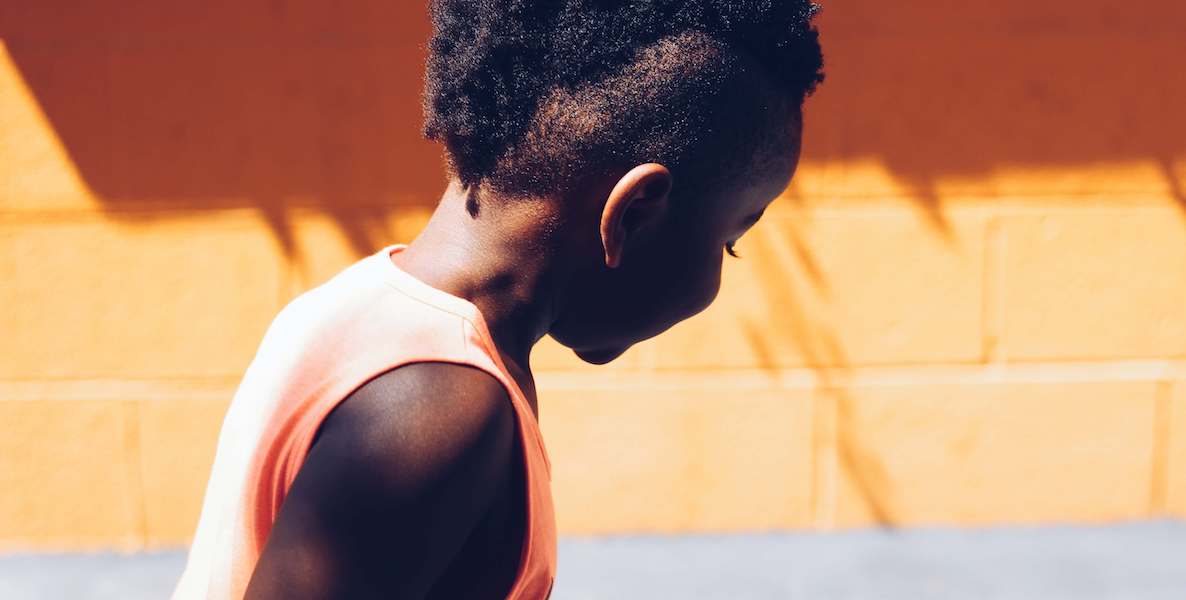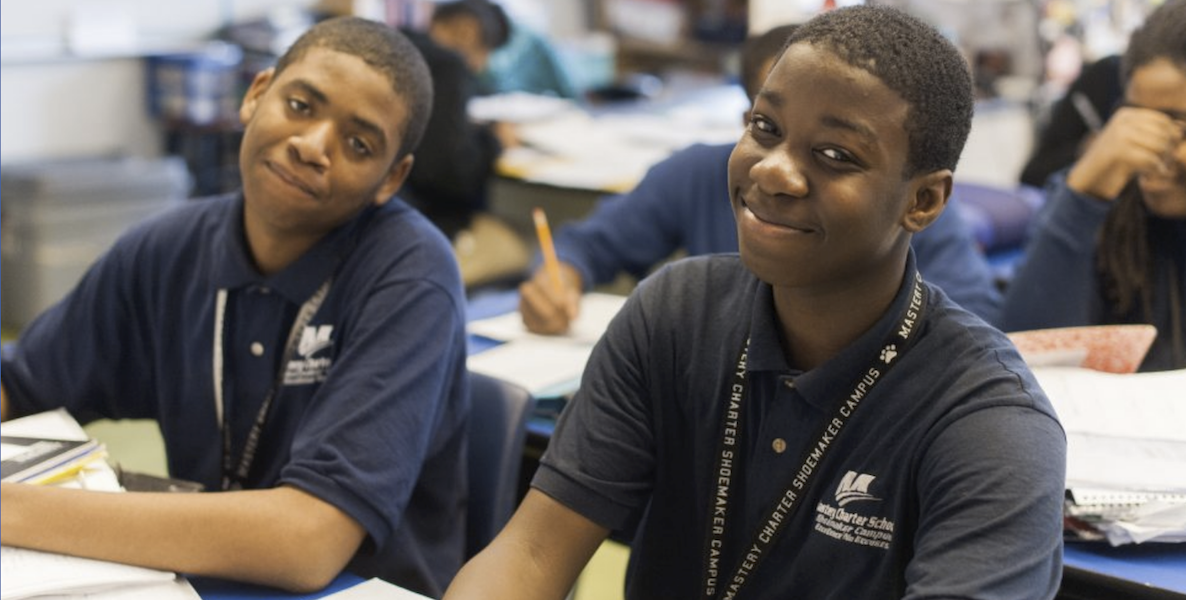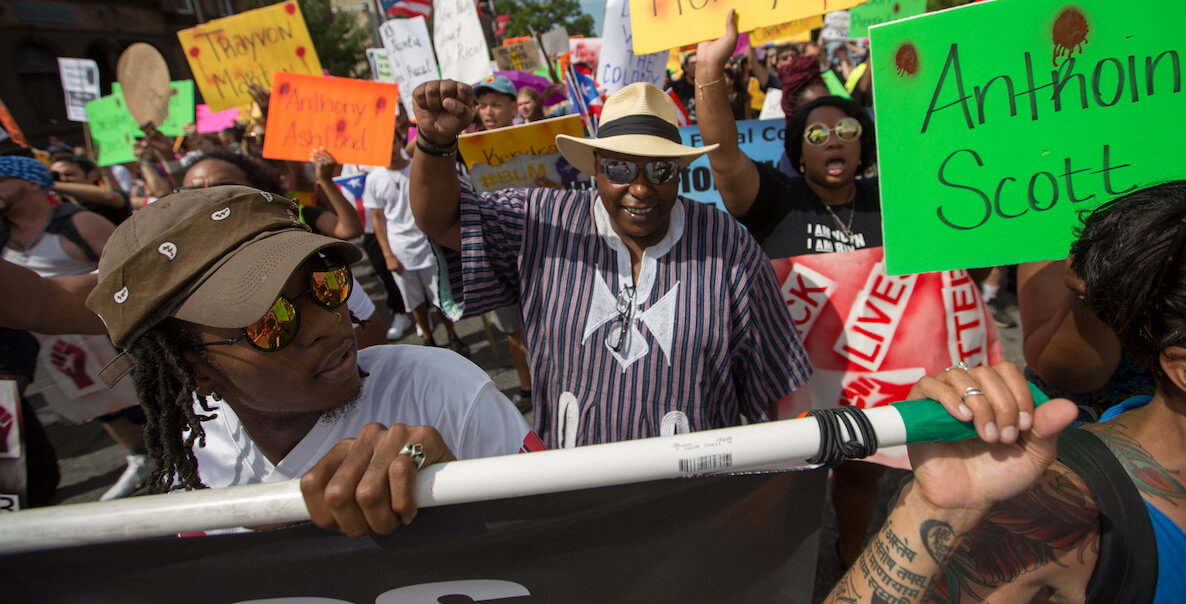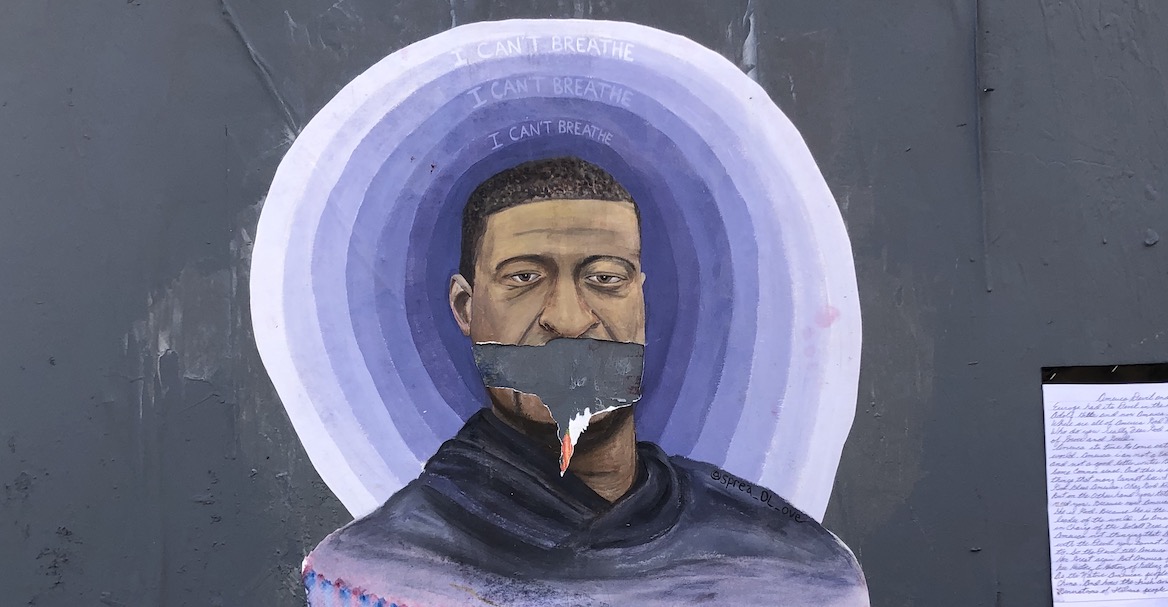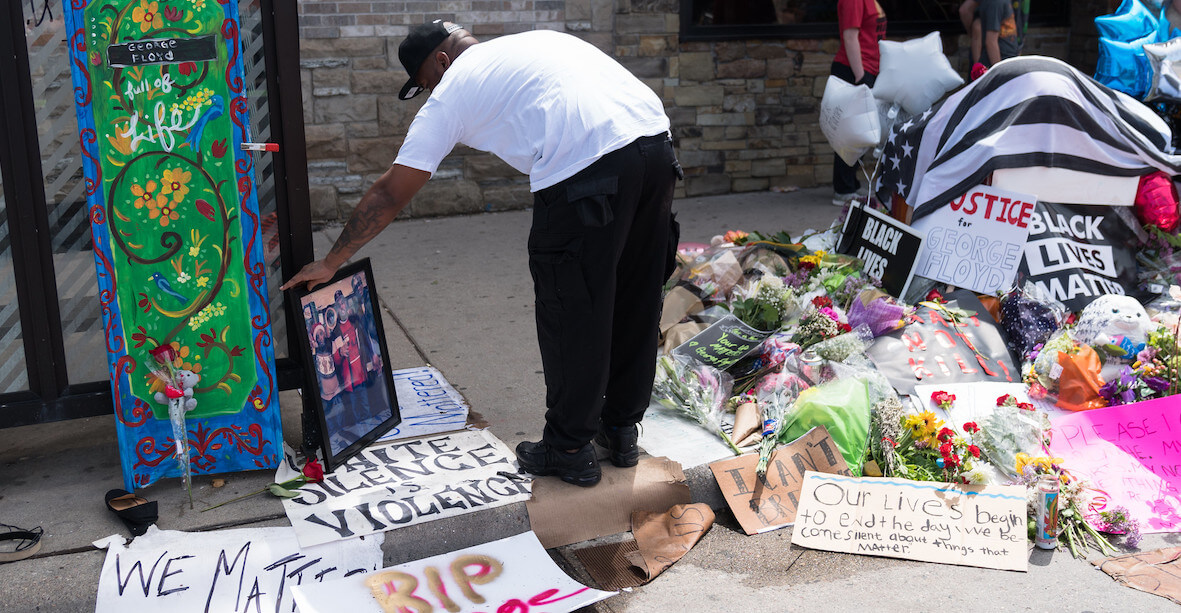George Floyd.
Say his name. Say it again. Remember it, and remember what happened to him: He was killed last week by a Minneapolis police officer who held his knee on Floyd’s neck for 8 minutes and 40 seconds—including nearly three minutes after he stopped moving—even while the 46-year-old man cried out that he couldn’t breathe, even while he was dying.
Remembering is the easiest thing we can do.
This weekend’s incendiary protests in Philly spoke to the tinderbox that is America right now, a tinderbox that was a long time in the making. We reel from the death of another African-American person at the hands of the police—following another death of an African American at the hands of the police, following another death of an African American just for jogging.
It is hard to imagine a time when this won’t be the continuing story of America. This is who we are. Is this who we are? Is it who we have to be?
Always focus your help at the beginning point of pain for others. This is what might just help all of us move one step closer to the country the United States says it is, rather than the nation we actually are.
If there’s one thing we’ve learned in this pandemic, it’s that while we are not equally affected—by the disease, testing, treatment, economic fallout—we are all equally responsible for ensuring we can get to a better place. The same has to be true for the horrendous acts of racism, government-sanctioned or -tolerated, that permeate our society, seemingly without end.
It is hard to find a way into all this, even for those who think about it often—and even more for those of us who are not black. You can protest, as hundreds did here and all over the country over the last few days. But when the fires are put out, then what?
“My mind was searching for a way to find some scrap of do-better amidst a top-down convo of do-in whoever is causing, has caused, continues to cause, harm,” Penn professor and novelist Lorene Cary told me Friday, “until my mind stopped hearing “Die, Nigger, die!” from Covid, from cops, from culture, from high blood pressure, from sugar, from history on your neck, from commercial investment in the idea that you are rocket fuel.”
But feeling hopeless can’t be the end. We must step out of hopelessness into real work. And that work must be done by all of us—perhaps, especially, by white people.
Educator and activist Chris Stewart—co-host of the 8 Black Hands podcast with Philly educator (and sometime Citizen contributor) Sharif El-Mekki—said on his blog, CitizenEd, a couple weeks ago something that seems important to remember:
There are things you can do … that we all can do. We must always venture beyond our pain to help others with theirs. Our deepest responsibility is to support the people who have the least and truly feel the pain of what our people are going through.
If there is one thing we hope you get out of reading this, it is to always focus your help at the beginning point of pain for others. This is what has guided each of us along our respective paths, and it is what might just help all of us move one step closer to the country the United States says it is, rather than the nation we actually are.
Here, some (mostly) local ways you can help make change:
1. Support Philadelphians who are working to bridge race relations.
Like POWER (Philadelphians Organized to Witness, Empower & Rebuild), an interfaith, interracial group working to lift up the lives of poor communities of color, or Movement Alliance Project (formerly Media Mobilizing Project).
2. Support local advocacy organizations run by people of color whose mission you believe in.
Including the ACLU of Pennsylvania, Frontline Dads, Black and Brown Workers Cooperative, Womanist Working Collective, Philadelphia Fight, or Black Lives Matter.
3. Bail people out of jail.
So they don’t lose their jobs, their children and their homes—before they are even convicted of a crime. Donate to either Philadelphia Community Bail Fund or Philadelphia Bail Fund, to help bring people home and reduce their risk of catching Covid-19. Or, send your money to Minnesota, where the Freedom Fund is helping with legal costs for protesters there.
4. Push for a fundamental change to policing.
Start with the obvious: Bad cops should be fired, and stay fired. In Philly, though, the police union contract too often allows bad actors back on the force, something every police chief has complained about for years. It takes leadership—which means it takes a push from all of us—to reverse that policy.
“This education needs to start in your homes, not because your kids’ lives depend on it, but because mine do,” Tabitha St. Bernard-Jacobs wrote.
But also: What if, instead of training police to fight a war, we trained officers in the art of nonviolent confrontation, and kept training them throughout their career on how not to use force?
Cary pointed to the late Cheri Maples, a former cop who was also a Buddhist, who wrote beautifully about this in a piece every police officer—as well as the rest of us—would do well to take in: “I am convinced that when a police officer starts with a commitment to non-aggression and preventing harm, the gun and badge become symbols of skillful means, rather than symbols of authority and power,” she wrote.
And, this: “For a police officer, wisdom is being able to discern when gentle compassion is called for and when fierce compassion is called for.”
5. Support organizations that are working to reform our prison system.
Like Youth Sentencing and Reentry Project, Amistad Law Project, Youth Art and Self-Empowerment Project, DecarceratePA, Free The Ballot, LILAC Philly.
6. Support organizations in Philadelphia that work with young African Americans.
Including Coded by Kids, Art Sanctuary, Mighty Writers, Institute for the Development of African American Youth (IDAAY), 100BlackMen and Girls on the Run Philly.
7. Show up for the protests, as hundreds did this weekend.
Especially if you are not black. Look at Minneapolis for how that makes a difference: It isn’t just black and brown people on the front lines of those actions; they are joined by white activists.
“The white activist community in Minneapolis understands their role in putting themselves in harm’s way for the sake of others,” says Erica Atwood, former head of Mayor Nutter’s Office of Black Male Engagement and currently Councilperson Jamie Gauthier’s chief of staff, who worked on violence reduction strategies as a consultant in Minneapolis in 2017. “Here I don’t see that in the same numbers.” Based on this weekend’s events, that may be changing here in Philly.
“I am convinced that when a police officer starts with a commitment to non-aggression and preventing harm, the gun and badge become symbols of skillful means, rather than symbols of authority and power,” Cheri Maples wrote.
8. But also show up at the office.
If you’re white, remember that power dynamics, hiring choices, family-leave policies, financial decisions can lift up people of color—or not. “I have white friends who will ride out with me,” says Atwood. “On the other hand, it’s easier to show up for a protest. You have to do the work to understand how to show up in both places, to understand that microaggressions are real, that you as a white person make people feel a certain way.”
9. Teach your kids.
As Tabitha St. Bernard-Jacobs, director of community engagement for the Women’s March, said in a letter to white parents last week: “This education needs to start in your homes, not because your kids’ lives depend on it, but because mine do.” Bernard-Jacobs offered two places to start: Embrace Race’s “10 Tips For Teaching and Talking About Race,” and this workshop on raising anti-racist children that starts June 10.
10. Show love for Philadelphia students.
Encourage your school to incorporate all or part of the curriculum from the Philadelphia Black History Collaborative, a coalition of educators trying to change the way black history is taught.
Support El-Mekki’s efforts to recruit and train African-American teachers, something that can have a profound effect on young black students, through the Center for Black Educator Development. (Start by telling any black high school or college students interested in education about the Center’s summer training programs.) And sign up teachers for Racial Literacy Training with Penn’s Howard Stevenson—brother of Equal Justice Initiative’s Bryan Stevenson.
11. Support black-owned businesses, especially now.
Small businesses owned by people of color have been the most left out of government loan programs—and the failure of a whole swath of the economy threatens to wreak havoc on already poor communities in Philadelphia. Order food through Black and Mobile, which is like Caviar for black-owned restaurants. Or, order takeout from this growing list of black-owned restaurants, now up to more than 150, all over town.
Tell legislators to fund community development financial institutions, which give loans more readily to small neighborhood businesses. Or donate to the Pennsylvania 30 Day Fund, started by Jeff Bartos, to give $3,000 forgivable loans to mom and pop establishments, most of them minority-owned.
12. If you’re white, do the work.
Don’t rely on African Americans to do it for you, or to hold your hand every step of the way. You are reading this on the internet—go read some other things, like this list of Anti-racism Resources making the rounds, from activist/writers Sarah Sophie Flicker and Alyssa Klein, which includes dozens of books, movies, TV shows to absorb and organizations to support, or this 75 Things White People Can Do For Racial Justice. Go read the New York Times’ 1619 Project; Bryan Stevenson’s Just Mercy; Ibram X. Kendi’s How to Be An Antiracist.
13. Vote.
We need change, both on the ground—and at the top. Advocate for at-home voting in November, help register young people through Vote That Jawn, started by Lorene Cary, and work for other ways to make voting easier and more accessible. And show up at the polls—or at your kitchen table—every single time.
Updated June 7, 2020.
George Floyd wheatpaste at Broad and Wharton streets, by @sprea_dl_ove.

